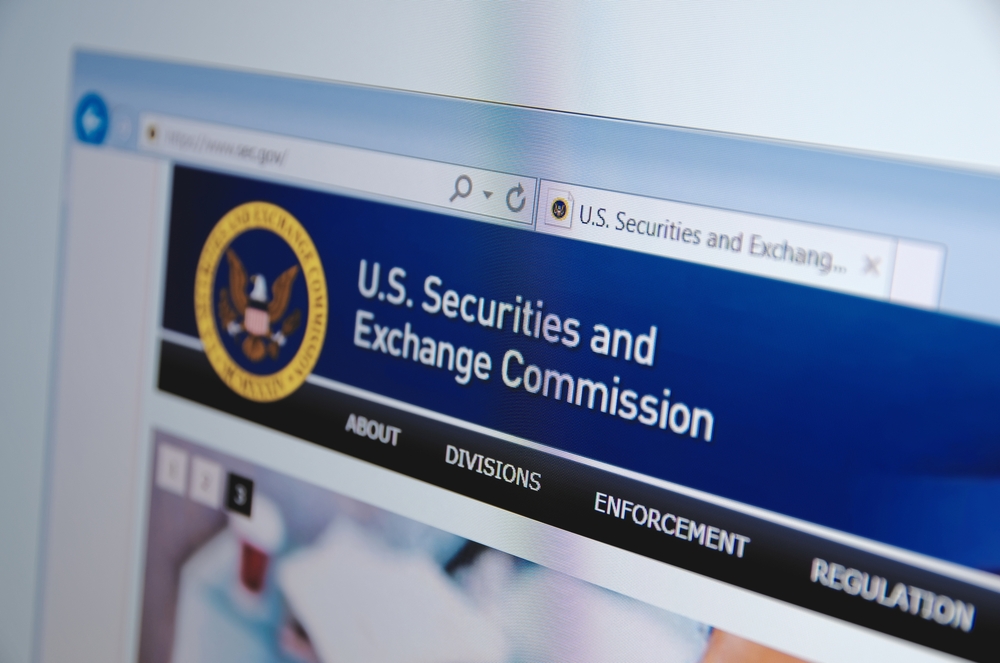 The Securities and Exchange Commission has moved forward on a new rule streamlining the conditions under which exchange-traded funds (ETFs) can come to market.
The Securities and Exchange Commission has moved forward on a new rule streamlining the conditions under which exchange-traded funds (ETFs) can come to market.
The new rule and form amendments first proposed in June 2018 are designed to modernize the regulation of ETFs by allowing ETFs meeting certain standardized conditions to come to market without obtaining an individualized exemptive order, according to the guidance. The Commission also voted to issue an exemptive order that further harmonizes related relief for broker-dealers.
“As the ETF industry continues to grow in size and importance, particularly to Main Street investors, it is important to have a consistent, transparent, and efficient regulatory framework that eliminates regulatory hurdles while maintaining appropriate investor protections,” SEC Chairman Jay Clayton stated in announcing the new rule.
The SEC explains that, since 1992, it has issued more than 300 exemptive orders allowing ETFs to operate under the Investment Company Act and today there are approximately 2,000 ETFs with over $3.3 trillion in total net assets. To come to market, however, ETFs still had to rely on individualized exemptive orders permitting them to operate under the Investment Company Act. As such, this individualized approach has generated differences in exemptive order representations and conditions, which, in turn, have led to variations in the regulatory structure for existing ETFs.
New Rule 6c-11
The new Rule 6c-11 modernizes this process by permitting certain ETFs to operate without the expense and delay of obtaining an individualized exemptive order, but only if they satisfy certain conditions, including the following:
- Transparency: An ETF will be required to provide daily portfolio transparency on its website.
- Custom basket policies and procedures: An ETF relying on rule 6c-11 will be permitted to use baskets that do not reflect a pro-rata representation of the fund’s portfolio or that differ from the initial basket used in transactions on the same business day (“custom baskets”) if the ETF adopts written policies and procedures setting forth detailed parameters for the construction and acceptance of custom baskets that are in the best interests of the ETF and its shareholders. The rule also will require an ETF to comply with certain recordkeeping requirements.
- Website disclosure: The rule will require an ETF to disclose certain information on its website, including historical information regarding premiums and discounts and bid-ask spread information. These disclosures are intended to inform investors about the costs of investing in ETFs and the efficiency of an ETF’s arbitrage process.
The guidance further notes that one year after the effective date of the rule, the Commission is rescinding exemptive relief previously granted to certain ETFs, including those that will be permitted to operate in reliance on the rule.
In addition, the Commission also is adopting certain disclosure amendments to Form N-1A and Form N-8B-2 to provide investors who purchase and sell ETF shares on the secondary market with additional information regarding ETF trading and associated costs, regardless of whether such ETFs are structured as registered open-end management investment companies or unit investment trusts.
The SEC emphasizes, however, that while the rule would cover most ETFs, it will not cover certain types of ETFs, such as leveraged and inverse ETFs and non-transparent ETFs. The SEC notes that sponsors of leveraged and inverse ETFs, as well as sponsors of non-transparent ETFs (not subject to daily portfolio transparency), should continue to work with staff to seek the required exemptive relief.
The rule and form amendments will be effective 60 days after publication in the Federal Register, but there will be a one-year transition period for compliance with the form amendments.
‘Testing-the-Waters’ Communications
The Commission also adopted a new rule that will extend to all issuers the flexibility provided by the Jumpstart Our Business Act (JOBS Act) to communicate with institutional investors about potential IPOs and other registered offerings to better gauge market interest.
The 2012 JOBS Act permitted emerging growth companies to engage in oral or written communications with certain institutional investors to gauge interest in a contemplated initial public offering. The SEC notes that these “testing-the-waters” communications have proven to be a popular and cost-effective means for evaluating market interest before incurring the costs associated with an initial public offering and have provided benefits to both issuers and investors.
OTC Markets
In addition, the SEC is proposing amendments to rules governing the publication of quotations for over-the-counter (OTC) securities that seek to better protect investors from fraud and manipulation, while facilitating more efficient OTC trading in certain well-capitalized issuers.
Under Rule 15c2-11, broker-dealers generally are required to obtain and review certain basic information about an issuer before publishing quotations in the issuer’s security in the OTC market. The current rule, however, includes a so-called “piggyback exception” that essentially permits broker-dealers to continue to rely on the initial broker-dealer’s information review perpetually, which, in some cases, has resulted in fraudulent schemes, the Commission notes.
Under the proposed amendments:
- the documents and information reviewed by broker-dealers must be both current and publicly available;
- broker-dealers would not be able to continue quoting a security under the piggyback exception if information about the issuer is not current and publicly available;
- broker-dealers would not be permitted to continuously quote the securities of shell companies; and
- certain burdens on broker-dealers would be reduced for securities where information is more readily available and there is less concern about fraud and manipulation (for example, actively traded securities of well-capitalized issuers).
The SEC notes that in 2017 and 2018 it suspended trading in hundreds of OTC issuers, the vast majority of which involved securities that were piggyback-eligible and lacking current public information. In addition, most enforcement cases involving OTC securities have involved delinquent filings, which result in a lack of current or accurate information about an issuer.

